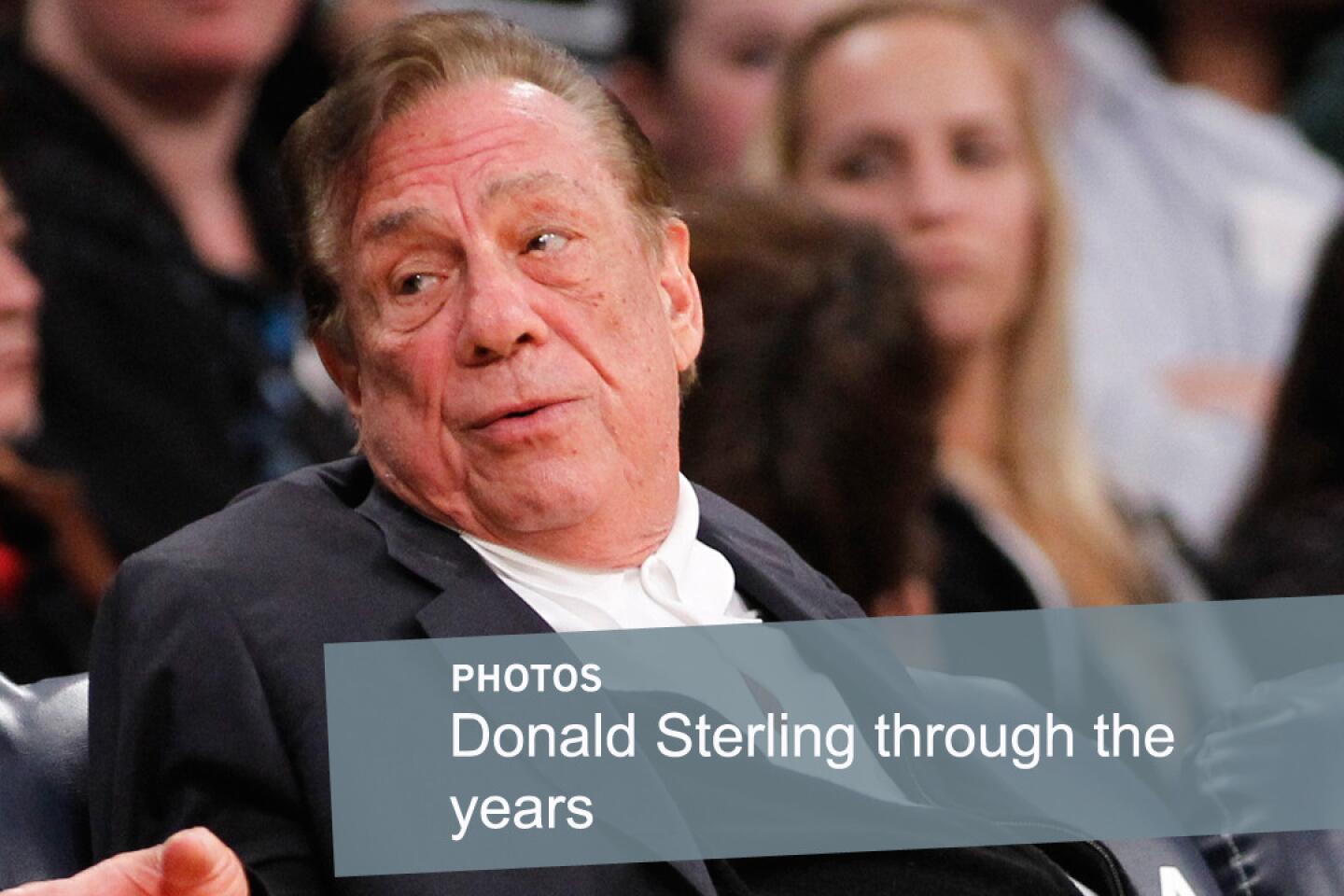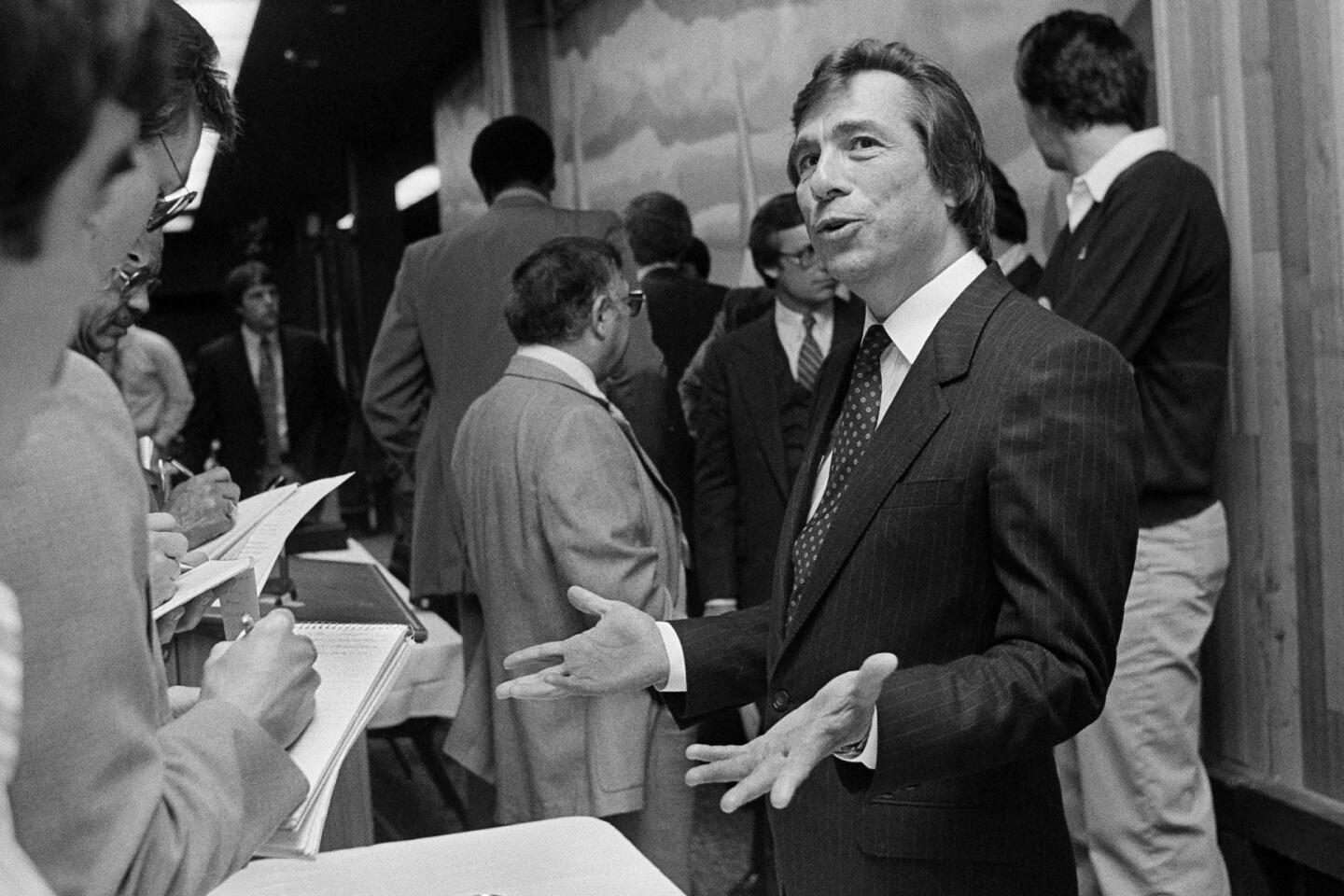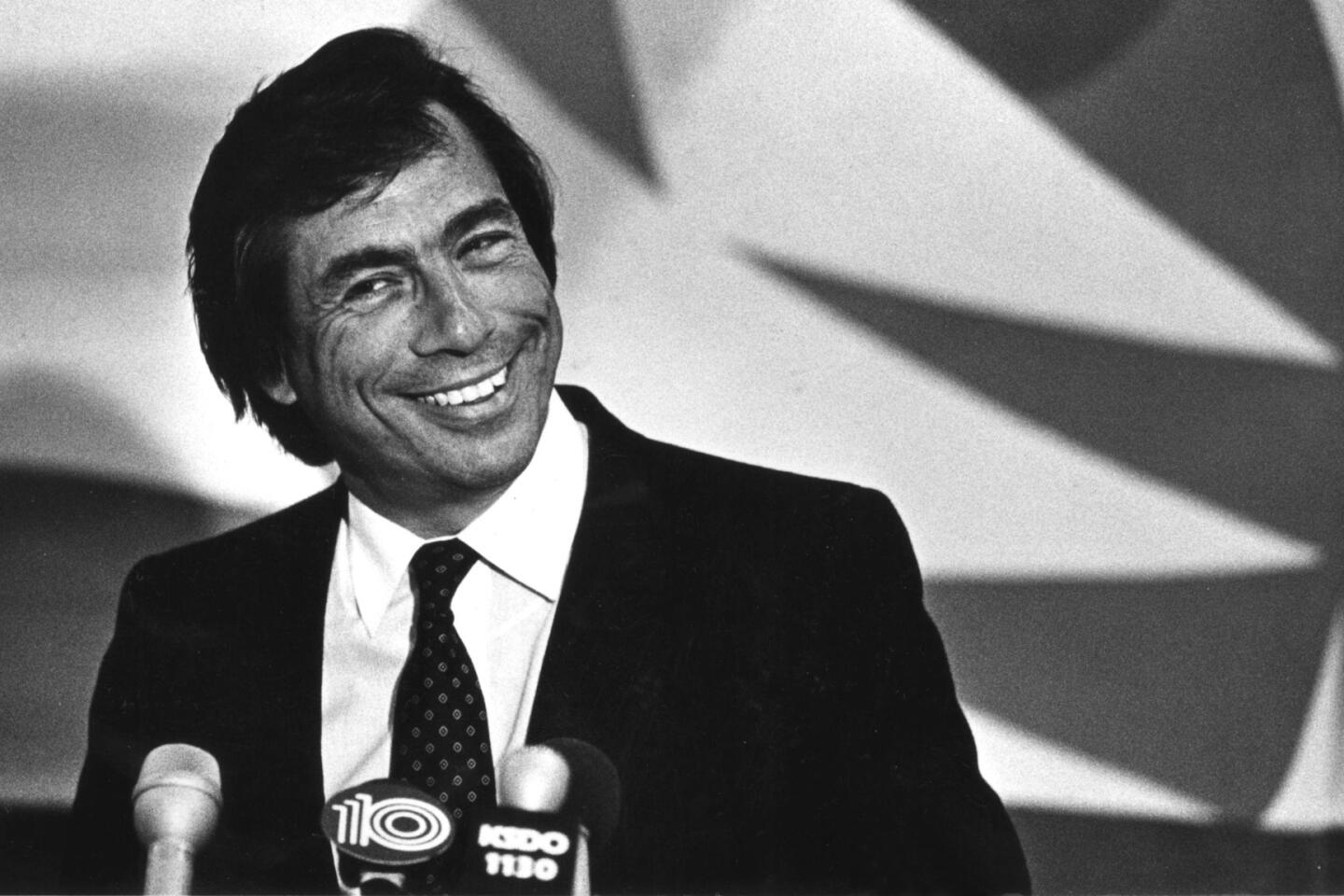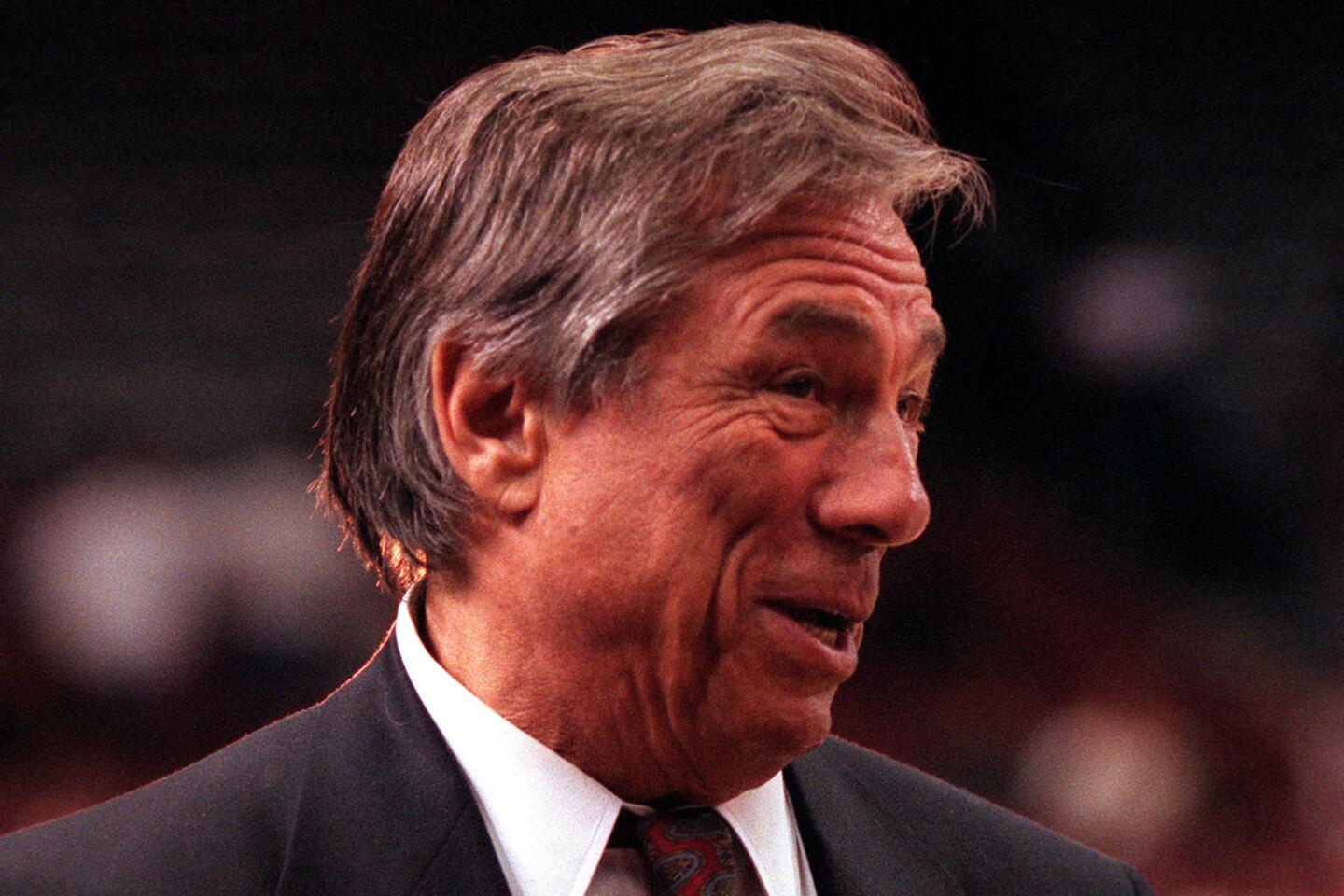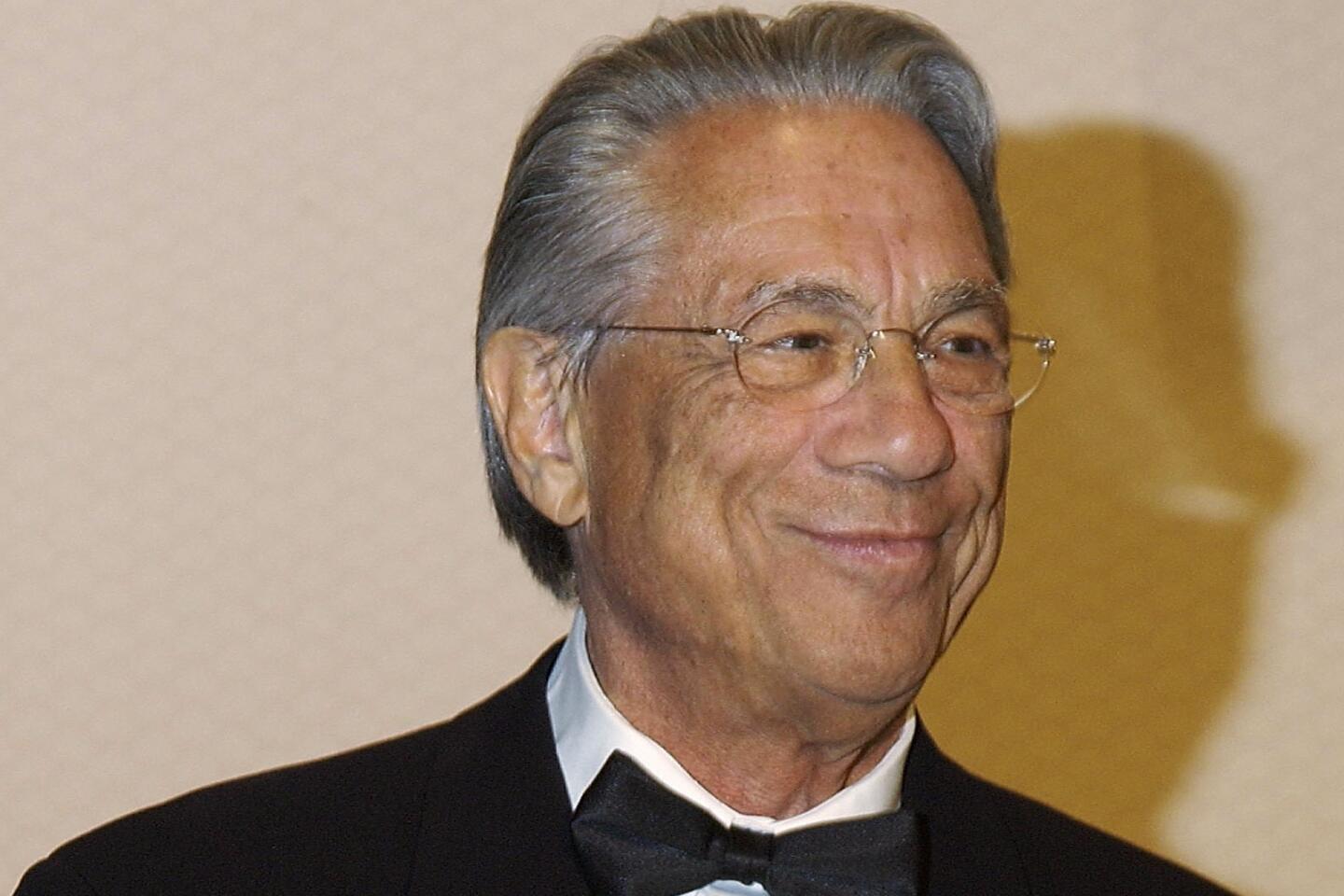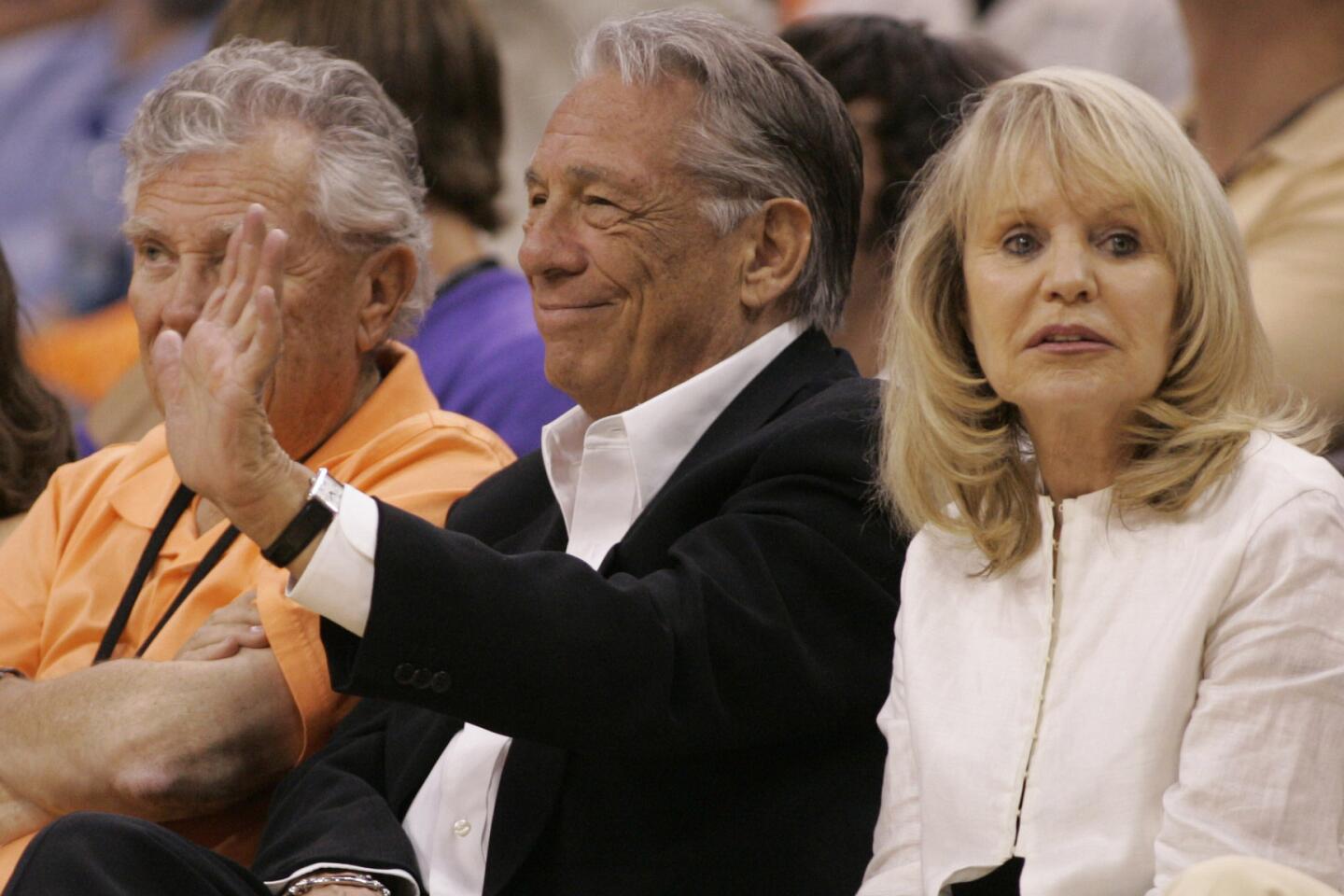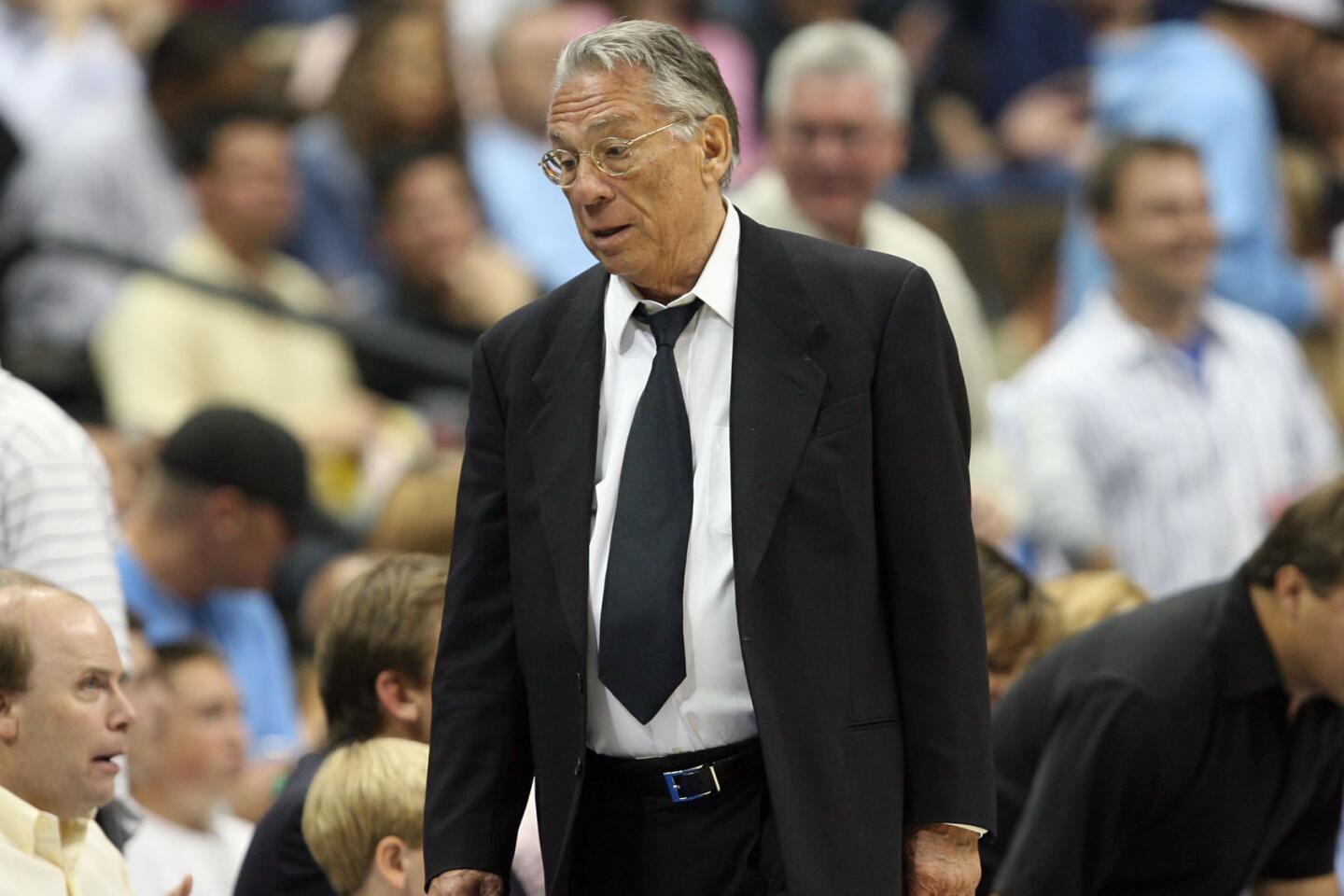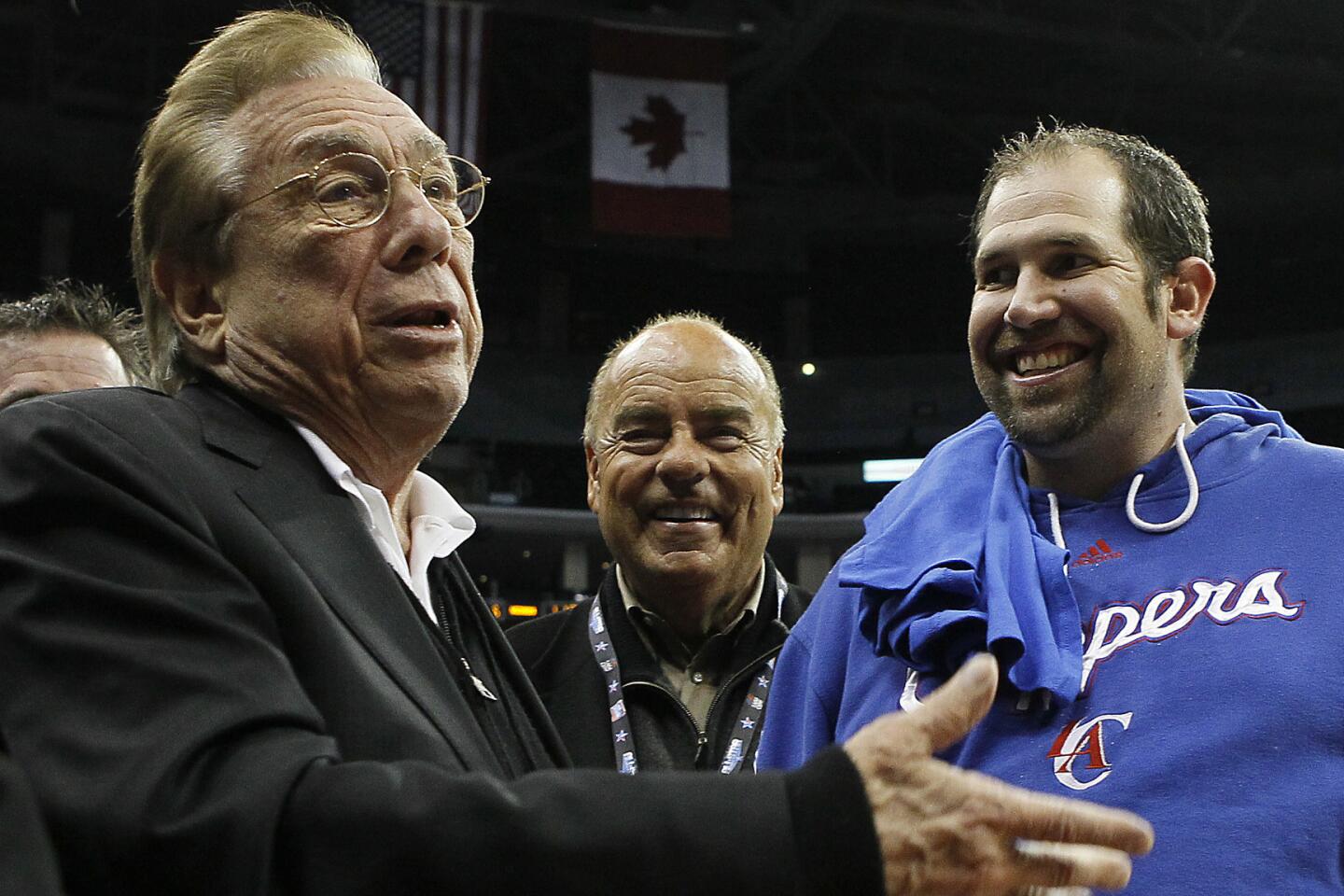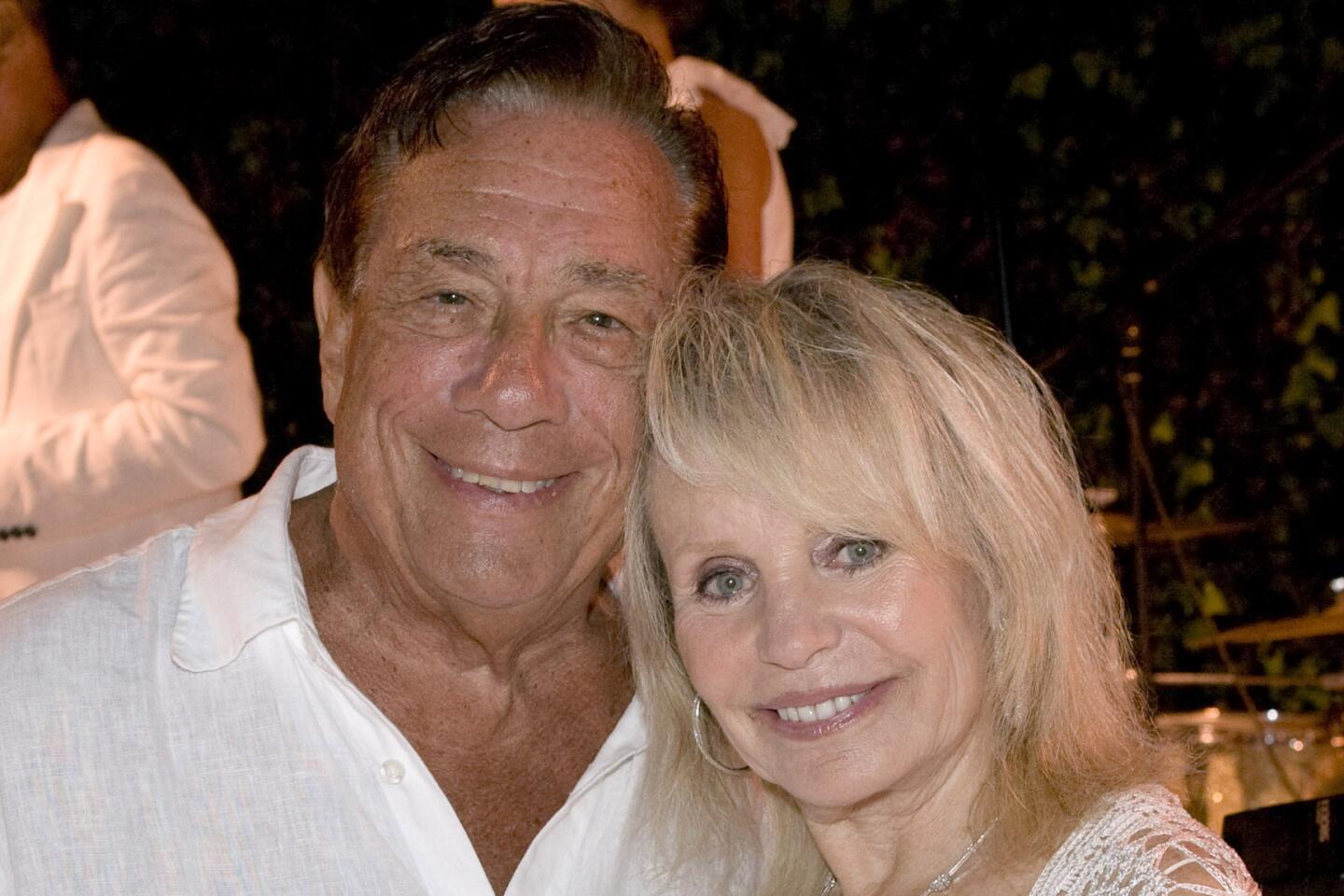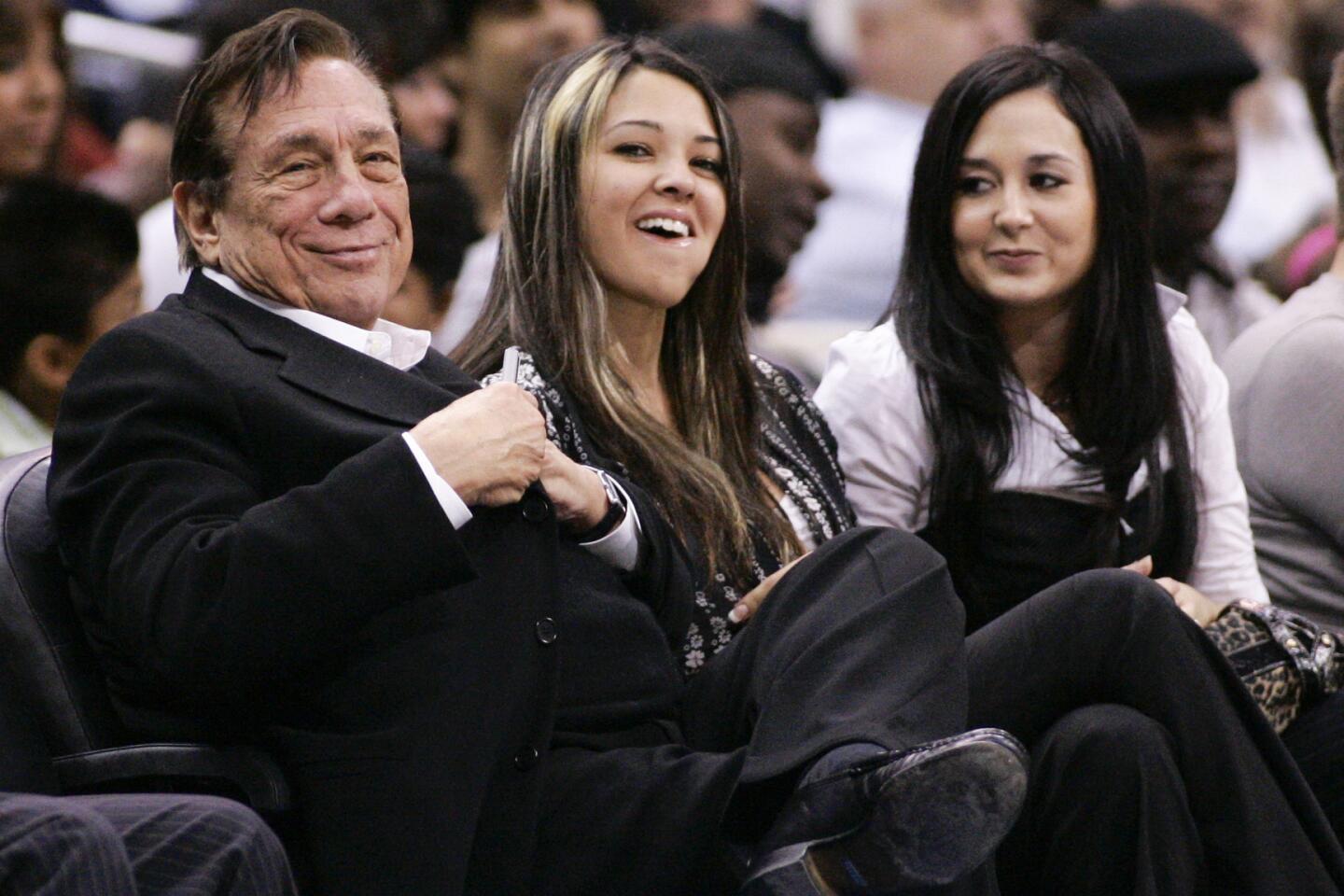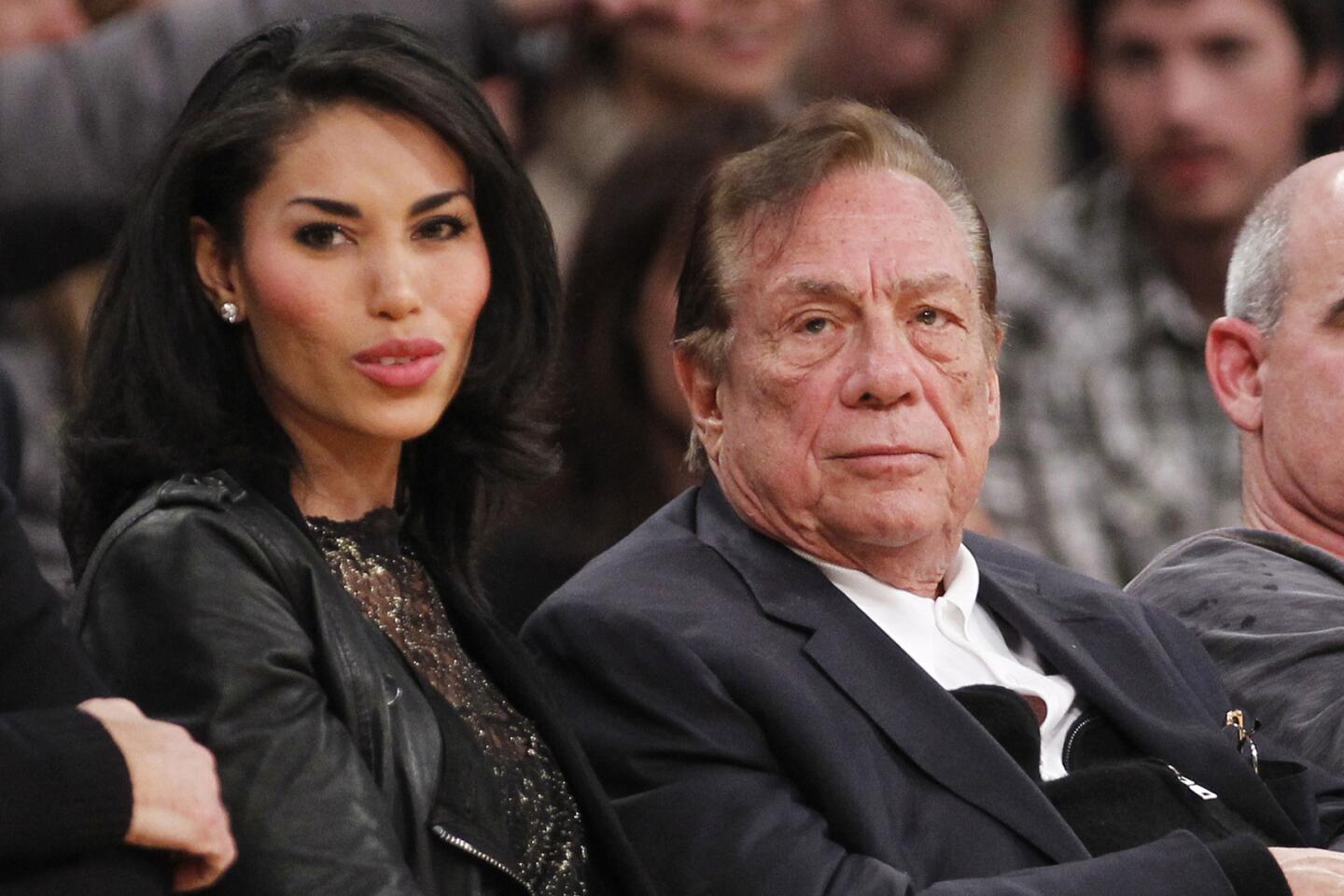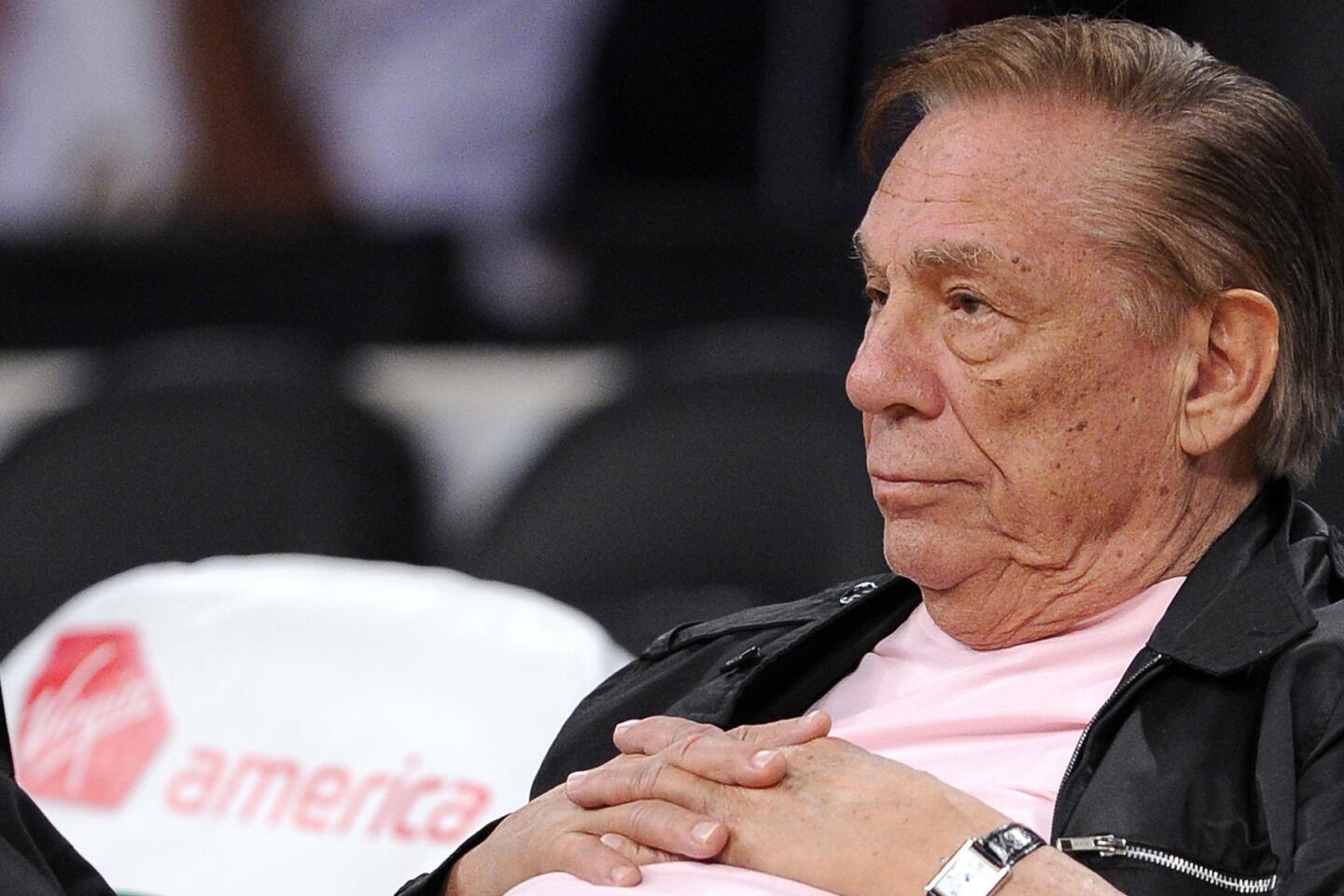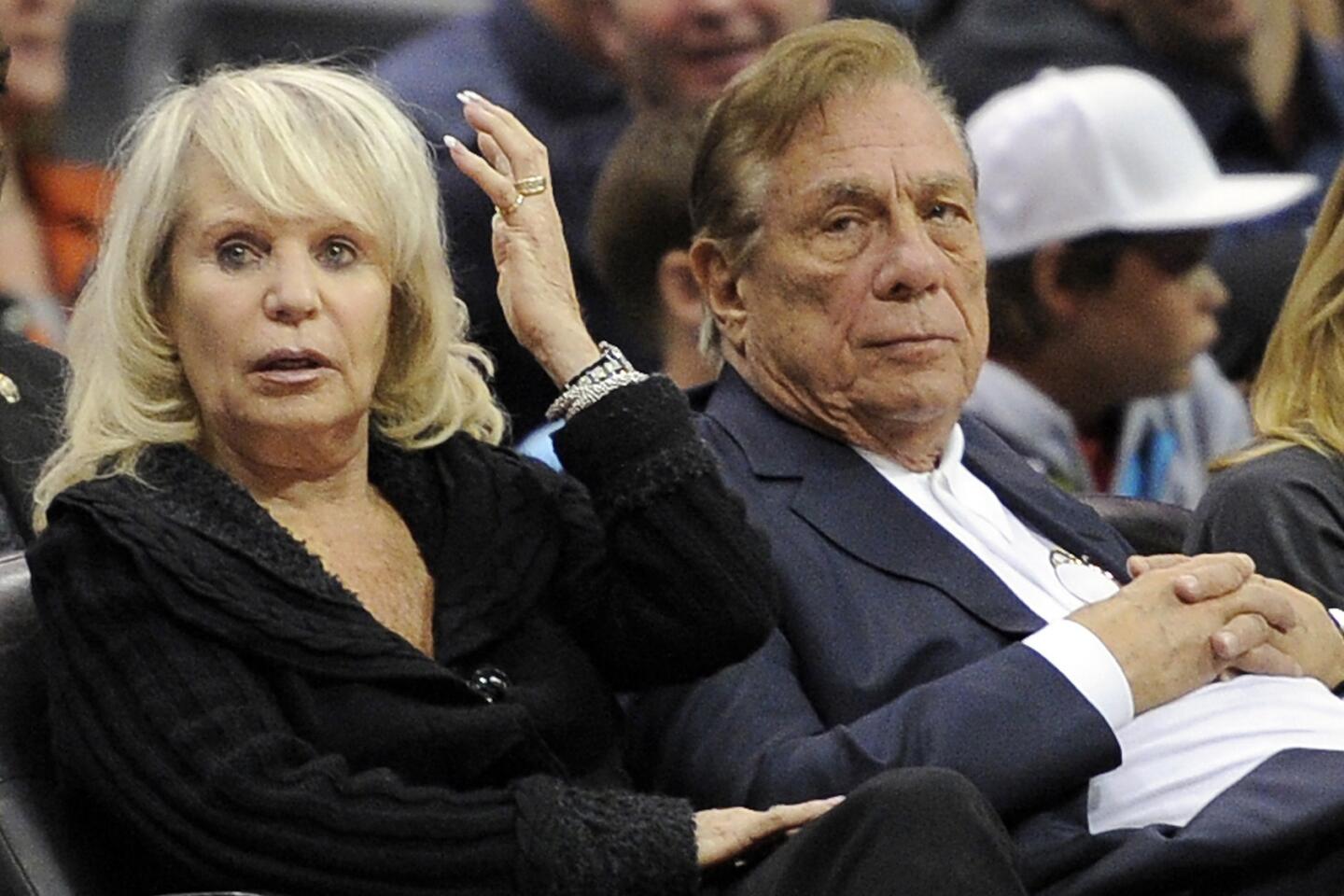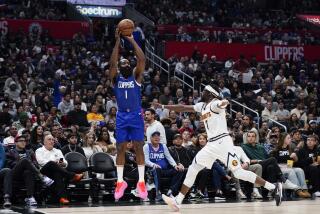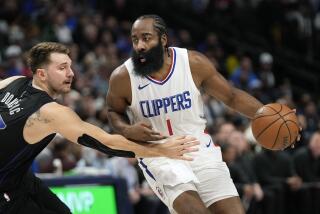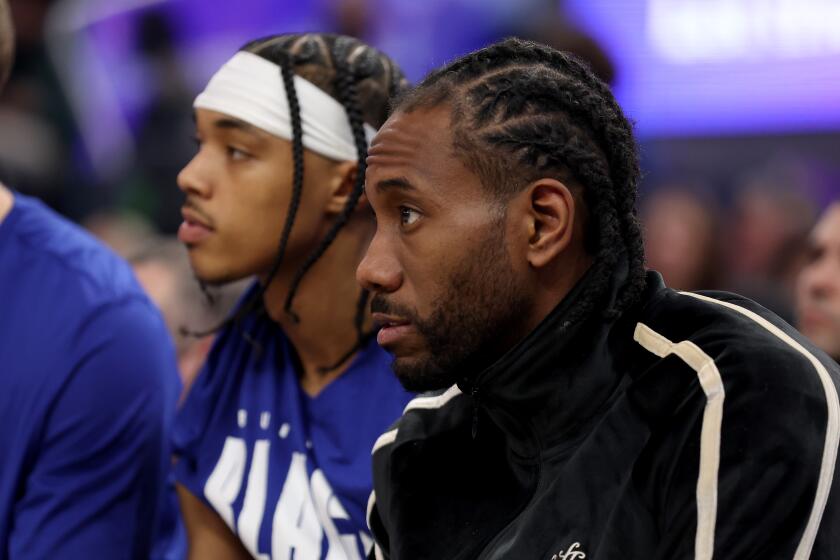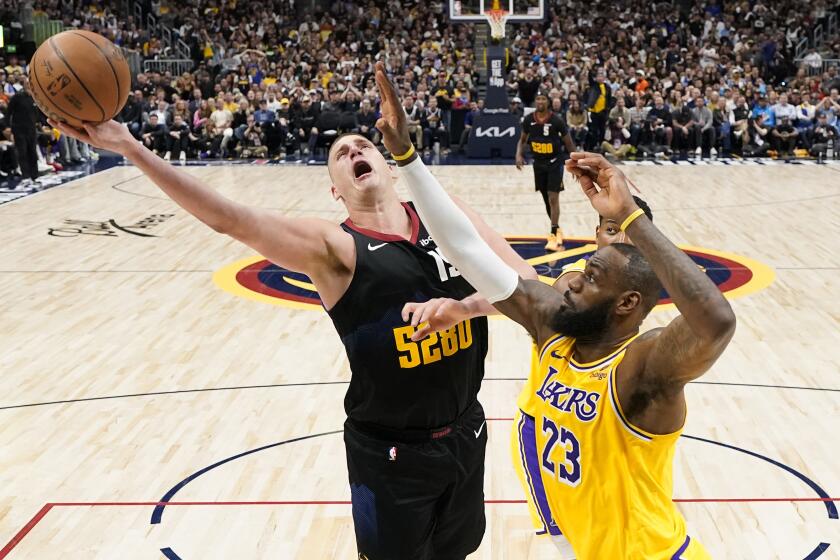Analysis: Sterling case is a novel legal obstacle course
It was Donald Sterling’s last chance to present evidence that might persuade a judge he should remain in control of the Clippers. And things didn’t go so well.
Sterling’s lawyers brought forward a string of exhibits and, one by one, Judge Michael Levanas said he would not admit them. Each was superfluous, hearsay or burdened with some other flaw. Seven times last Wednesday, the L.A. County Superior Court judge repeated: “Not received.”
Much of the probate trial of Sterling vs. Sterling — which will conclude Monday with closing arguments — went that way. Lawyers for the billionaire real estate magnate frequently objected, but harmful testimony came in. They tried to bar other evidence — including the mental exams Sterling failed, costing him control of his NBA team — but the reports were allowed.
They offered only two witnesses and one had so few credentials that courtroom observers shook their heads.
The most memorable episode of the trial, Sterling’s own testimony, devolved into a rant against the NBA, not a valedictory for his own leadership skills. And that was before the Clippers boss verbally assaulted his wife, Shelly, calling her a “pig” and a liar.
But the string of courtroom losses and Sterling’s inability to control his anger may mean little as Shelly Sterling tries to get Levanas to validate her $2-billion sale of the Clippers to former Microsoft Chief Executive Steve Ballmer. For the deal to go through, Sterling’s wife of nearly 59 years needs the judge to:
— Validate the incapacity procedure she used to take over the family trust.
— Judge irrelevant her husband’s subsequent dismantling of the same trust.
— Grant an extraordinary order that even an appellate court’s intervention would be meaningless.
Experts say that the latter two issues, in particular, venture into novel legal ground. With limited precedent to guide him, Levanas will fall back on arcane provisions of California’s probate code and case law that has little in common with one of the most lucrative deals in big league sports history.
And if Shelly Sterling’s team loses on even one of the issues? Then, her lawyer Pierce O’Donnell conceded, the Clippers sale “can’t go through immediately.”
The strategies
Perhaps the only thing everyone can agree upon is that Donald Sterling will fight on every legal front possible, for as long as possible. He has a federal antitrust lawsuit pending and a state court suit, filed last week, that claims he is still the rightful corporate owner of the Clippers.
The 3-month-old furor began when Sterling, 80, chastised V. Stiviano, the 31-year-old woman he called his girlfriend, for posting a picture online of herself with Magic Johnson. Sterling told her not to bring blacks to Clippers games, and on April 25 TMZ posted an audio recording of the conversation.
Four days later, the NBA banned Sterling for life and fined him $2.5 million. Commissioner Adam Silver asked the league’s Board of Governors to strip Sterling of his team. What followed was a series of contradictory statements from Donald Sterling about selling the team, which seemingly ended with Shelly Sterling, 79, signing a sales agreement after having her husband removed from the family trust because of mental incapacity.
The trial started July 7 with both sets of lawyers agreeing to only limited testimony about Donald Sterling’s mental state, in a bid to streamline the case. Donald Sterling could contest the findings of his wife’s two medical experts, but wouldn’t call his own doctor. In a trade-off, Shelly Sterling’s lawyers would not fight her husband’s belated termination of the family trust; they would only contest the impact of the termination.
So Donald Sterling’s lawyers focused on discounting the findings of neurologist Dr. Meril Platzer and geriatric psychiatrist Dr. James Spar. Shelly Sterling said she hired both only out of loving concern for her husband. She said she had no idea their opinions would be used to oust her husband from control — until May 29, as she was preparing to sign a deal with Ballmer, with only her husband’s lack of approval standing in the way.
Max Blecher, one of Donald Sterling’s attorneys, countered by bringing up a statement by Shelly Sterling’s attorney O’Donnell that they “were fully aware” of the possibility of removing the longtime Clippers owner.
That could cast Shelly Sterling as more calculating than she conceded. But it would not be a crime. And it would not step outside the guidelines in the trust, which say either of the Sterlings, as trustees, can remove the other from control if two doctors say so.
“I think it’s going to be hard for Donald to win the argument he had no idea the real reason he underwent these exams or that they were fraudulent,” said an attorney who practices frequently in Levanas’ court. “That does not fly.” The lawyer asked not to be named to preserve relationships with the judge and lawyers in the case.
But none of that should matter, Donald Sterling has argued, because of the action he took on June 9 to revoke the family trust, which he said makes control of the team revert back to its 1998 status, when he was sole shareholder of the Clippers.
Which Sterling wins?
On the first day of the trial, Levanas said he considered revocation “the elephant in the room” — a substantial issue that would be argued mostly through legal briefs, not testimony.
The cleanest route to victory for Donald Sterling would be if the judge accepts the argument that the revocation leaves the court with no jurisdiction on the trust’s affairs.
Shelly Sterling’s lawyers, who chose not to contest the revocation, argue that is still leaves the trust with a short afterlife, during which she can “wind up” business.
Adam Streisand, who is representing Ballmer, conceded that there is “not a lot of law” on the issue. But he said that “every court that has ruled has said a trustee has power to ….preserve trust assets, even after a revocation. He said that should include completing the Clippers sale, to maximize the value of the trust.
Donald Sterling’s lawyers argue the law lets Shelly Sterling take only “passive actions” to pay debts and wrap up business, and gives her no authority to complete the sale.
“For a terminated trust, there are no cases that say explicitly how much authority the trustee has,” said Steven L. Hogan, a veteran probate attorney. “With nothing close to this situation before, ultimately it’s going to make new law.”
Even if the judge approves Shelly Sterling’s removal of her husband from the trust, she will need one more victory. Her sales agreement requires that, without Donald Sterling’s permission, the deal is not complete unless a court “issues a final and non-appealable order confirming Shelly Sterling’s authority to unilaterally bind the trust” and sell the team.
There are only about a dozen appellate court cases on such special orders, which allow such action in “extraordinary circumstances” involving an imminent loss.
“Even if she could paint a picture of some kind of financial loss because of a failure of optimal business conditions, this is not the kind of extraordinary loss the statute was designed to protect against,” said Patrick Goodman, who teaches a probate course at UCLA law school.
But the judge might “strike out on his own,” realizing that “not invoking the statute means that the sale of the Clippers to Steve Ballmer may not be valid,” Goodman said.
Levanas could issue the order allowing the sale, but that still might not end the case. An emergency writ to the appellate court could block his action.
Then there are Donald Sterling’s two other lawsuits. “Everybody is here waiting and thinking this [probate] ruling will determine the fate of the sale, but I don’t think it will,” said Donald Sterling’s attorney Bobby Samini. “You can’t get all the way home, and that is the issue we have raised.”
In the end, it might be left up to the NBA. Commissioner Silver presumably would move ahead with his plan to ask other team owners to vote to seize the Clippers and sell it at auction, with the proceeds going to both the Sterlings.
@LATimesRainey
More to Read
Get our high school sports newsletter
Prep Rally is devoted to the SoCal high school sports experience, bringing you scores, stories and a behind-the-scenes look at what makes prep sports so popular.
You may occasionally receive promotional content from the Los Angeles Times.
